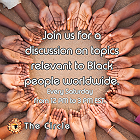? Islamic Affairs Council Denies Christian Genocide Claims in Nigeria, Cites Complex Conflict Dynamics
ABUJA, NIGERIA — The Nigerian Supreme Council for Islamic Affairs (NSCIA) has reportedly joined the Nigerian government and other bodies in firmly denying international claims of a "Christian genocide" occurring in the country, arguing that the term grossly misrepresents the complex and multifaceted security challenges facing the nation.
The denial comes amid a wave of renewed international scrutiny, particularly from some quarters in the United States, that has framed Nigeria's extensive security crisis as an organized campaign targeting the Christian population for religious extermination.
🛑 Misrepresentation of Violence
Sources close to the NSCIA have indicated that the Council views the "genocide" narrative as a simplistic and dangerous distortion of the reality on the ground. Key points of the denial often highlighted by official Nigerian sources and analysts include:
Non-Sectarian Victimization: The violence, which includes terrorism by groups like Boko Haram and ISWAP, banditry, and farmer-herder clashes, affects both Muslims and Christians across different regions. In many of the conflicts, particularly in the northern states, Muslims have also suffered significant casualties and displacement.
Complex Root Causes: The conflicts are typically rooted in economic, ethnic, political, and resource-based disputes—such as land and water access—rather than purely religious animosity.
Targeting of Leaders: The Council and other analysts note that Muslim leaders and clerics who speak out against extremist groups have also been targeted and assassinated, further demonstrating that the violence is not exclusively anti-Christian.
"The crisis is far more complex than a simple religious framing suggests," noted one security analyst, stressing that the geography of violence often determines who becomes the victim.
🤝 Call for Unified Front
The NSCIA's stance aligns with that of the Nigerian government, the National Assembly, and many Christian leaders who, while acknowledging the severe suffering of Christians in specific attacks, have cautioned against using the term "genocide" without credible evidence of a systematic, state-backed policy to destroy a religious group.
Experts have called for the nation's key religious bodies, including the NSCIA and the Christian Association of Nigeria (CAN), to issue unified statements to counter foreign misconceptions and avoid deepening religious divisions.
The Nigerian government has continued to push back diplomatically, urging international partners to replace what it calls "subjective criticisms" with strategic support and intelligence to help target the criminal and terror perpetrators who threaten all Nigerians, regardless of their faith.




















 The Sunday Circle
The Sunday Circle